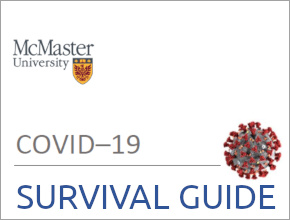Dr James Douketis is a staff physician in general internal medicine and clinical thromboembolism at St. Joseph’s Healthcare Hamilton, Ontario, and holds the David Braley-Nancy Gordon Chair in Thromboembolic Disease at McMaster University.
If you were to name the 3 most important recent advances in the management of venous thrombosis, what would they be?
James Douketis, MD: An important question that I’ve been asked is what I think is the most important advance in anticoagulant/antithrombotic management over the last decade. I can safely say that the emergence of DOACs, or direct oral anticoagulants, that came on to the clinical practice scene just over 10 years ago, has really revolutionized how we deal with anticoagulant management by improving safety, by improving efficacy, but most importantly by offering clinicians and patients a choice in regard to which anticoagulant to use. And it’s always good to have options. So, I would say that [it] is by far the biggest advance within the past decade.
Having said that, within the past few weeks, it has been astonishing how rapidly we have gained knowledge on this new entity of VITT, or vaccine-induced immune thrombotic thrombocytopenia, associated with the coronavirus disease 2019 (COVID-19) vaccines. We’ve learned how to diagnose VITT and we also know that it’s challenging to treat it, but we have ways to do that with nonheparin anticoagulants.
And, of course, everybody knows the broader story of the association between COVID-19 and thrombosis, how it uses a very different mechanism and paradigm in terms of thrombogenesis and, of course, how that affects how we treat patients with COVID-19 pneumonitis.
So, [the most recent advances in the management of venous thrombosis include] a long-term revolution in anticoagulant therapy and, more recently, an incredible amount of knowledge gained, in such a short period of time, on COVID-19 and associated thrombosis and vaccine-associated thrombosis.
 English
English
 Español
Español
 українська
українська











